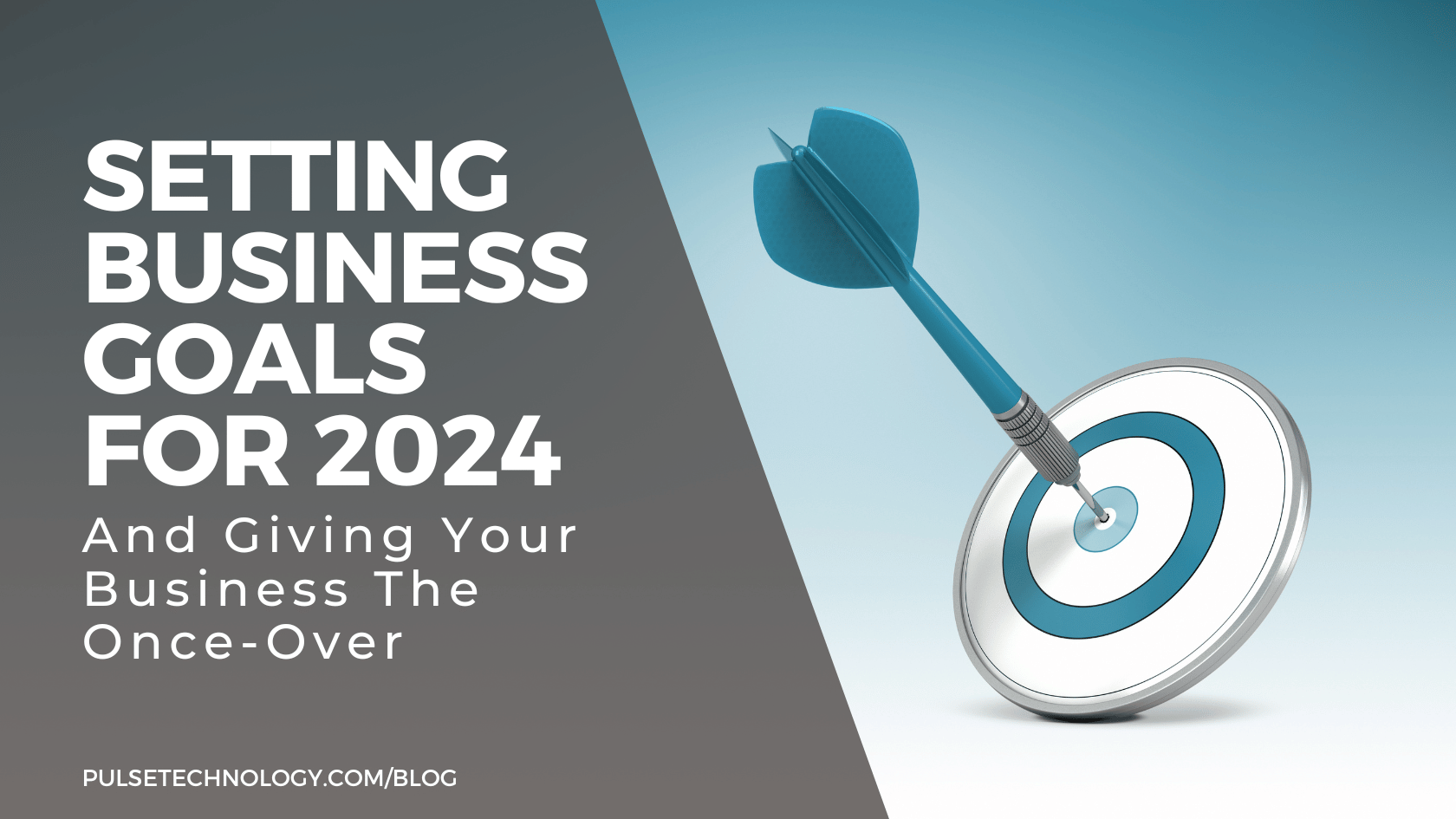A Practical Guide to Setting Professional Development Goals for 2025
With 2025 on the horizon, now is the perfect time to take a step back and map out your professional aspirations for the year ahead. Just like setting business goals, professional development goal setting begins with a self-assessment. Evaluating where you are and where you want to go allows you to identify the areas you’d like to improve or the new challenges you want to tackle. Whether you’re aiming to grow your skills, step into a leadership role, or find a better balance between work and life, setting clear, purposeful goals can make all the difference.
In this guide, you’ll uncover practical steps and actionable tips, and access a goal-setting template to turn your ambitions into achievements. Let’s jump in and make 2025 your year of progress!
The Three Categories of Career Goals
Before discussing why goal-setting matters, let's first explore the three main categories of career goals, each serving a unique role in driving professional growth and success.
- Performance Goals: These goals are results-driven and focus on meeting specific metrics or targets in your role. For example, "Achieve a 20% increase in monthly sales within the next quarter."
- Learning Goals: Aimed at acquiring new knowledge or skills that contribute to professional development. An example would be, "Complete an advanced course in Cybersecurity and obtain certification within three months."
- Development Goals: Focused on personal growth, leadership, and long-term career progression by taking on new roles or responsibilities. For instance, "Mentor two junior team members over the next year."
Some Examples of Professional Goals for 2025
Looking for ideas to guide your career journey next year? Check out these examples to spark your inspiration and help you start planning with confidence:
- Skill Development: Master a new software program relevant to your role.
- Networking: Build relationships with five key industry professionals by attending events or reaching out on LinkedIn.
- Work-Life Balance: Commit to leaving work at a set time, three days a week, to focus on personal well-being.
- Financial Growth: Negotiate a salary increase or explore freelance opportunities to supplement income.
- Leadership: Lead a cross-functional team project to enhance collaboration and visibility.
If traditional career objectives don’t resonate, explore unconventional goals that could enhance your professional and personal life:
- Boost Personal Branding: Build an authentic online presence that reflects your value and aligns with your career goals.
- Cultivate Emotional Intelligence: Develop empathy and self-awareness to navigate workplace relationships effectively.
- Promote Sustainability Initiatives: Champion eco-friendly practices in your organization to contribute to environmental progress.
Why Setting Professional Goals Is Important
Professional development goals are milestones you set to advance your career and achieve greater fulfillment in your professional life. Setting professional goals gives you direction and helps you measure progress. It turns vague aspirations into actionable steps, allowing you to:
- Stay motivated and focused.
- Improve your skills and knowledge.
- Align your efforts with long-term career objectives.
- Boost your confidence by achieving milestones.
Undoubtedly, professionals who consistently set and review goals report greater career satisfaction and growth. If you aim to earn a certification, improve leadership skills, or pivot to a new industry, goal-setting helps you achieve it all.
5 Helpful Steps for Setting Professional Goals for 2025
Success starts with setting clear, actionable goals that align with your career aspirations. Goals help you focus, stay on track, and measure progress toward growth. Here are simple steps to define, organize, and achieve your professional development goals this year:
Step 1: Reflect on 2024
Before setting new goals, take stock of your achievements and lessons learned in 2024. Review the tools, processes, and skills that led to previous achievements, and consider why those milestones mattered. Ask yourself:
- What were my biggest accomplishments in 2024?
- What challenges did I face, and how did I overcome them?
- Are there areas where I fell short, and why?
This self-assessment will highlight strengths to build on and areas for improvement. Additionally, understanding your values is a crucial part of reflection. So, take time to consider what you truly value in your career and align them with your goals.
Step 2: Define Your Goals Using the SMART Framework
Ensure your goals are Specific, Measurable, Achievable, Relevant, and Time-bound. For example:
- Instead of “Improve my skills,” aim for “Complete a certification in data analysis by June 2025.”
- Replace “Grow my network” with “Attend two industry networking events each quarter in 2025.”
SMART goals provide clarity and accountability, making it easier to track progress.
Step 3: Prioritize and Break Down Goals
Not all goals are created equal. Rank them based on their importance and impact on your career. Once prioritized, break each goal into smaller, actionable steps. For instance:
Goal: Secure a promotion by December 2025.
- Step 1: Discuss career advancement opportunities with your manager in Q1.
- Step 2: Take on a leadership role in a key project by mid-year.
- Step 3: Enroll in a leadership development course by March.
Breaking goals into manageable tasks not only simplifies the process but also helps you stay focused, track progress, and celebrate milestones. Stay realistic and prioritize to avoid burnout while ensuring consistent growth.
Step 4: Create an Accountability System
Accountability is essential for turning your professional development goals into reality. Without it, even the most well-crafted plans can lose momentum. Consider the following strategies to ensure you stay on track and maintain progress:
- Set deadlines: Assign timelines to each goal and its sub-tasks.
- Schedule check-ins: Regularly revisit your goals to ensure they remain aligned with your changing career path.
- Track progress: Use tools like planners, apps, or spreadsheets to monitor milestones.
- Involve others: Share your goals with a mentor, manager, or colleague who can provide guidance and hold you accountable.
Step 5: Be Flexible and Adapt
Life and work can be unpredictable, so it’s important to remain adaptable. Regularly review your goals and adjust them as needed. Celebrate progress, even if it’s slower than expected, and learn from setbacks.
Tools and Resources for Professional Development
Setting goals is one thing, but having the right tools makes it easier to stay on track. Here are some helpful resources:
- Online Learning Platforms: Websites like LinkedIn Learning, Coursera, and Skillshare offer courses to help you upskill.
- Goal-Setting Apps: Tools like Asana, Trello, and Notion can keep your tasks and goals organized.
- Mentorship Programs: Seek out mentors in your field or join mentorship networks to gain guidance and accountability.
- Pulse Career Opportunities: Check out Pulse Technology for exciting career paths that align with your goals.
3 Tips for Overcoming Common Professional Goal-Setting Challenges
Professional goals are crucial for career growth, but challenges are bound to arise along the way. The key is to anticipate these challenges and have strategies ready to address them. Below are three actionable tips to help you overcome the most common hurdles:
- Overcoming Procrastination: Procrastination happens when tasks feel overwhelming. Break your goal into smaller, manageable steps and assign deadlines to each. For example, if you aim to complete a certification, start by scheduling time to research programs, gather materials, and plan study sessions. Clear, small actions make big goals achievable.
- Reigniting Motivation: When motivation fades, reconnect with why your goal matters to you. Whether it’s for career advancement or personal growth, reminding yourself of the bigger picture can reignite your drive. Celebrate small wins along the way and treat yourself when you hit key milestones to keep the momentum going.
- Conquering the Fear of Failure: Fear of failure is natural, but it shouldn’t stop you. Treat setbacks as learning opportunities to improve your approach. Start with small tasks to build confidence and lean on supportive colleagues, mentors, or friends who can encourage you to push forward.
Take the First Step Toward Your Best Year Yet with Pulse
Professional growth doesn’t happen by chance—it requires intentional planning and consistent effort. Setting thoughtful goals and taking proactive steps can help you make 2025 a milestone year in your career.
Ready to get started? Download our printable goal-setting template to map out your 2025 professional development goals. This tool will help you clarify your objectives, break them into actionable steps, and track your progress.
At Pulse Technology, we’re more than a workplace—we’re your partner in professional growth. From career opportunities to IT services, office technologies, and products, we provide the tools you need to succeed. Explore our job openings and discover why working at Pulse can be your first step toward achieving your 2025 goals.




